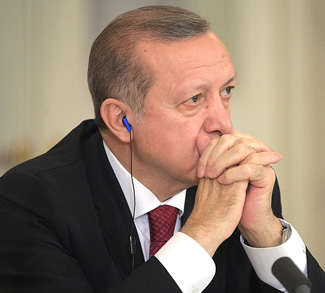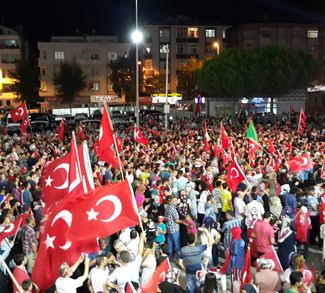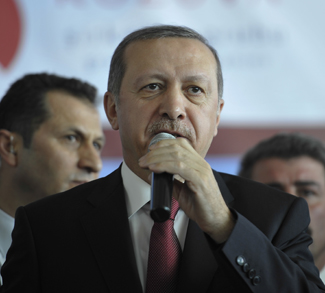Summary
Turkish President Recep Tayyip Erdogan has provoked a diplomatic crisis with Europe as he campaigns overseas to whip up support among expatriate Turks for a controversial constitutional referendum to expand the powers of his office. The referendum is being held on 16 April; it seeks to modernize Turkey’s current constitution, which was drawn up after the military coup of 1980 on the orders of Turkey’s once-omnipotent military. The race has become increasingly tight for modern Turkey’s mightiest politician, who inspires reverence on one half of Turkey’s political spectrum and intense hatred on the other.
The latest confrontation with Europe comes after two of the president’s ministers were prevented from addressing rallies in Holland out of fear of importing Turkey’s political divisions into the Turkish minority community. The choleric and highly nationalist President Erdogan, who still resents the slowness with which many EU states responded to the attempted coup against his government last summer, seized the opportunity to spark a politically convenient row with those European states who banned the rallies. The incendiary rhetoric used by the Turkish president is likely by design, as it will help to mobilize his base when Turks go to the polls next month.
Background
A dictator in the making? President Erdogan is accused by his many enemies at home and abroad of seeking dictatorial powers in Turkey. His holding the constitutional referendum under the state of emergency left over from last year’s attempted coup has left many uneasy, as has the purge of all opposition to the president in public life – another consequence of the 2016 coup attempt. The opposition claims the president and his AKP party are conflating opposition to the planned constitutional changes with support for terrorism and/or coup plotters within the military and political establishment. Meanwhile academics, lawmakers, activists, and journalists who are critical of the president have been thrown in prison or otherwise harassed.




